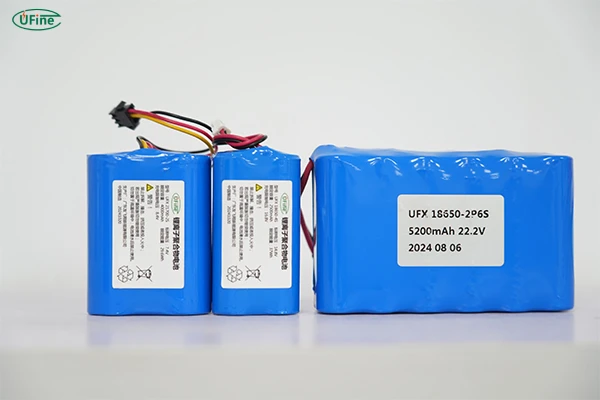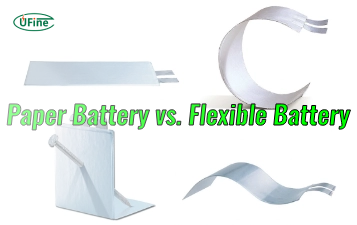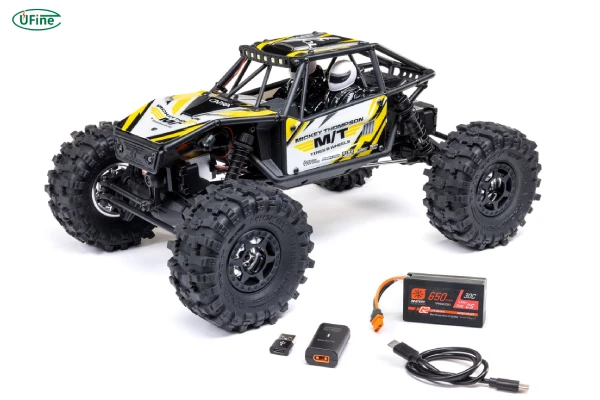There’s something magical about remote control cars. That rush of speed, the thrill of control, and the simple joy of racing—it’s an escape for many of us. But behind every great RC car is a powerful heart: the battery. And if you’re serious about performance, there’s one clear winner—remote control car LiPo batteries.
These batteries are more than just power sources. They define how fast your RC car moves, how long it runs, and how consistent its performance stays over time. If you’ve been struggling with sluggish speed, poor runtime, or overheating packs, it’s time to dive deep into the world of LiPo batteries.
Part 1. Remote control car battery types

Before we get into the nitty-gritty of LiPo batteries, let’s look at the landscape of RC car power sources.
- NiMH (Nickel Metal Hydride): Affordable, beginner-friendly, but heavier and less powerful.
- NiCd (Nickel-Cadmium): Old tech, lower energy density, and prone to memory effect.
- Li-ion (Lithium-ion): Decent energy density, longer life, but can’t match LiPo’s power output.
- LiPo (Lithium Polymer): Light, powerful, fast-charging, and perfect for high-performance RC vehicles.
NiMH Battery vs Li-Ion Battery vs NiCad Battery: How are they different?
Among all these, LiPo batteries dominate the RC world for a reason—they’re built for speed, acceleration, and endurance.
Part 2. Remote control car LiPo battery features
So, what sets remote control car LiPo batteries apart?
- High Power Output: These batteries can deliver bursts of current instantly, giving your RC car incredible acceleration.
- Lightweight Construction: LiPo cells are lighter than their NiMH or NiCd counterparts, improving speed and handling.
- Flexible Design: They come in various shapes and sizes, suitable for everything from mini racers to 1/8 scale monster trucks.
- Consistent Voltage Delivery: You get steady power output throughout the run—not just at the start.
- Customizability: Many LiPo packs are designed to match specific discharge rates, voltages, and capacities.
This is why racers and enthusiasts rely on LiPo batteries—they’re the fuel for competitive edge.
Part 3. Remote control car LiPo batteries specifications
To pick the right LiPo battery, you need to understand the key specifications:
- Voltage (V): Each LiPo cell has 3.7V. So:
- 2S = 7.4V
- 3S = 11.1V
- 4S = 14.8V
- Capacity (mAh): Measured in milliamp-hours. Higher capacity = longer run time.
- Discharge Rate (C Rating): Tells you how fast energy can be released. A 50C 5000mAh battery can deliver 250A!
- Size & Weight: Your RC car’s chassis must accommodate the battery’s dimensions.
- Connector Type: Deans, XT60, EC3, Traxxas—ensure compatibility with your ESC.
These numbers may seem overwhelming at first, but once you match them to your RC car’s specs, you unlock peak performance.
Part 4. Buy the best remote control car LiPo batteries: 7 key considerations
When you’re investing in a battery, think beyond just the price tag. Here’s what to really focus on:
- Compatibility with Your ESC and Motor: Voltage must match what your system supports.
- Battery Dimensions: A snug fit prevents damage from vibrations and crashes.
- Capacity & Weight Balance: Don’t go too big. Heavier batteries can slow your car despite longer runtime.
- C Rating: Higher C gives better punch but can stress your system if overdone.
- Number of Cells (S): More cells = more voltage = more speed—but also more heat and wear.
- Brand Reputation: Quality matters. Cheap LiPos often fail fast or dangerously.
- Safety Certifications: Look for CE, RoHS, and built-in protection circuits.
Tip: Looking for a reliable source? Ufine Battery, a leading custom lithium battery manufacturer from China, offers high-performance LiPo batteries designed for RC cars. Whether you need high voltage, unusual dimensions, or extreme discharge rates, Ufine can customize LiPo packs to meet your exact needs.
Contact Ufine Battery today to discuss your RC project and get expert recommendations.
Part 5. How much battery capacity does your remote control car need?
This depends on how long you want to run your car—and how hard you push it.
Here’s a simple way to calculate: Runtime (mins) = (Battery Capacity in mAh / Motor Current in mA) × 60
So, if your motor draws 20A (20,000mA) and you use a 4000mAh pack: 4000 ÷ 20000 = 0.2 hours = 12 minutes
To extend runtime:
- Use higher mAh batteries
- Reduce throttle use
- Optimize gearing and motor efficiency
Just remember—bigger isn’t always better. Too much weight reduces speed and agility.
Part 6. How to extend the life of remote control car battery?
LiPo batteries can be fragile if not cared for properly. But with a bit of attention, they can last hundreds of cycles. Here’s how:
- Don’t Overcharge or Over-discharge: Keep voltage between 3.3V and 4.2V per cell.
- Balance Charge Every Time: This ensures all cells are charged equally.
- Store at 50–60% Charge: Especially if you won’t use it for more than a few days.
- Avoid Extreme Temperatures: Heat kills LiPos. Cold reduces performance.
- Use a LiPo-Safe Bag: Especially during charging or transport.
- Check for Puffing or Damage: Stop using the battery immediately if you notice bulging.
Caring for your LiPo is like caring for a high-performance engine—it rewards you with speed and reliability.
Part 7. How to choose RC car LiPo charger?
A bad charger can ruin your battery—or worse. Here’s what to look for:
- Balance Charging Feature: Absolutely essential for multi-cell LiPos.
- Adjustable Amperage: Customize charge rate based on battery size.
- Multi-Chemistry Support: Ideal if you use other types of batteries too.
- Smart Features: Auto-detect, LCD screen, error alerts—all helpful.
- Safety Protections: Overcharge, overheat, reverse polarity protections are non-negotiable.
Some brands also offer mobile apps for charge monitoring—handy for racers!
Again, Ufine Battery doesn’t just offer custom batteries—they can also help you source the perfect charger for your RC setup. Reach out for personalized support!
Part 8. Final thoughts
Choosing the right remote control car LiPo battery is more than a tech decision—it’s about unlocking the full thrill of your RC experience. Whether you’re a casual backyard driver or a competitive racer, understanding your battery gives you an edge—and a whole lot more fun.
If you’re looking for a trusted supplier of high-performance and custom RC LiPo batteries, Ufine Battery has the experience and capability to deliver.
Part 9. FAQs
Can I upgrade from NiMH to LiPo without changing anything?
Not always. You may need a new ESC, and a charger specifically made for LiPo batteries.
Is it safe to leave LiPo batteries fully charged overnight?
Store them at 50–60% charge. Leaving them fully charged too long degrades the cells.
What’s the danger of over-discharging a LiPo battery?
Over-discharge can cause swelling, reduced capacity, and even fire risk. Use a low-voltage cutoff.
How do I dispose of a dead LiPo battery?
Take it to a battery recycling center. Never toss it in regular trash or burn it.
Can I use the same LiPo battery in multiple RC cars?
Yes—if the voltage, connector, and size fit each car. Always double-check compatibility.
Related Tags:
More Articles

Paper Battery vs. Flexible Battery: What’s the Difference and Which Is Better?
Paper vs. flexible batteries: learn the key differences, benefits, and which power source fits best for wearables, sensors, and smart tech.
What to Know Before Buying a Tiny LiPo Battery for Your Project
Tiny LiPo batteries are powerful and compact. Learn how to choose the right one for your project with specs, safety, and charging tips.
Bloated LiPo Battery: Will It Explode?
Will a bloated LiPo battery explode? Discover the causes, risks, safety steps, and expert tips to avoid disaster and protect your gear. Must-read safety guide!
12V 100Ah Lithium Ion Battery Price: Full Guide
Learn about 12V 100Ah lithium-ion battery price, from cost ranges to best brands, hidden fees, and how to get the best deal. A must-read for smart buyers!
Resistance and Conductivity: What It Means for Your Lithium Batteries
Resistance and conductivity impact lithium battery performance, lifespan, and safety—learn how they work and why they matter.




